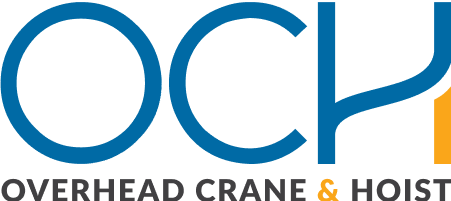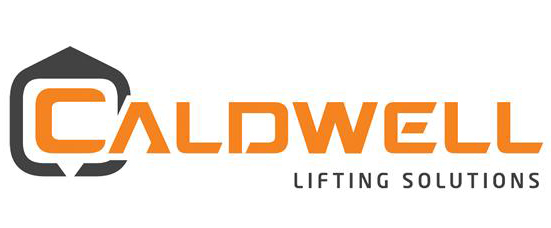The new VRS Starpoint—the name derives from RUD’s VIP program and the product’s star shape—features an added adjustable function.
For approx. two years, Rockford, Illinois-based Caldwell and the RUD Group have united their sales and marketing activities in North America for material handling and lifting devices within a common organization. Practically, the VRS is used to replace standard eyebolts that have to be de-rated for angular lifting, offering end users a safer option and one with less risk of a lifting point failure. The VRS can be loaded in any direction and does not need to be de-rated even for a side lift.

The VRS features the iconic RUD star-shape, which adds strength versus a typical ring and gives the user direction on how far around the ring they can make a safe load.
Jay Schroeder, regional sales manager at Caldwell, said: “The Starpoint gives safe alternative options to places where the end user needs a lifting point to swivel and maybe does not need the full versatility of a swivel load or hoist ring. Many times in the past, someone would try to make a four-point lift with a standard eyebolt. When you mount an eyebolt, you would get them in tight and they end up in four different orientations or the user would have to shim the eyebolt to try and get it in the correct orientation.”
Schroeder, who oversees sales for RUD, Caldwell and Renfroe products in the eastern half of the U.S. and Canada, added: “When you go to make a pick, eyebolts back out to the path of least resistance and are no longer ‘seated’. This puts undue stress on the bolts and will cause failure to the point of bending the eyebolt or ultimate failure of breaking it totally.”

The product is available in many different sizes.
However, the VRS features the iconic RUD star-shape, which adds strength versus a typical ring and gives the user direction on how far around the ring they can make a safe load. Working load limits (WLL) are stamped or forged on the product.
Schroeder said: “We tell the user that they can make a pick from point to point. If they choose to make a true vertical lift from one [VRS] or different combinations using multiple units, they can access our WLL either online or in our catalog.”

Working load limits are forged onto the product.
When using the VRS for lifting, the user engages the installation tool in the hexagon socket screw and tightens it by hand, before disengaging the tool and making a lift. Schroeder explained that if the application is a one-time lift, the manufacturer recommends hand tightening, but if it is for a permanent location Caldwell provides torque values to set them to.
The product is available in a myriad of sizes: metric; imperial; longer bolts for metric; and even custom threads for special applications. The range spans M6 to M64 and 5/16 in. to 2 in. Notably, it also features radio-frequency identification (RFID).
“RUD realizes that everyone has unique lifting requirements,” added Schroeder. “We try to fill as many holes as we can to help the end user. Some may need the standard product; others may want it without the key [tightening wrench] that comes as standard. It can be used in one-, two-, three- or four-piece configurations.”
All RUD products are made to DIN, BG and EN standards.

